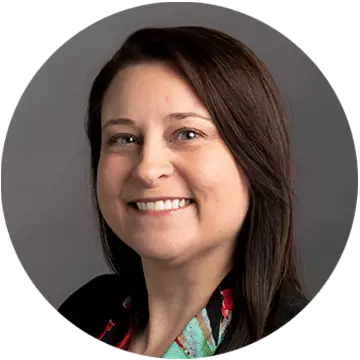What programs and options exist for non-degree-seeking students?
This article was updated on February 28, 2024.

Written by Michael Feder

Reviewed by Briana Houlihan, MBA, G-PM, Dean, College of General Studies

Education is almost always a good idea. But for someone looking to upskill, a traditional two- or four-year degree program may not be the only option to consider. A single course or a certificate might be enough to gain the necessary skills and experience someone needs to enhance their career. Enter non-degree program options.
What is a non-degree-seeking student?
A non-degree-seeking student is someone who enrolls at a college or university without planning to complete a degree program. Instead, they seek single courses or certificate options to develop skills in a particular industry or field.
Some non-degree-seeking students might take classes at one institution with the intention of transferring them back to where they were previously enrolled. Just be aware that not all credits are transferrable. Before you enroll in a course, check with your advisor to ensure that the credits will transfer to your institution of choice.
Non-degree options at University of Phoenix
When considering non-degree learning opportunities, you may want to keep an open mind about what that looks like.
Non-degree options include for-credit and not-for-credit educational opportunities like online classes, certificates, self-directed learning and apprenticeships. In addition to providing a surgical approach to skill development and enhancement, non-degree options can save students time and money while still offering educational value.
University of Phoenix offers several non-degree options. These are individual courses and certificate offerings, which help learners gain knowledge in their preferred field without having to commit to a full degree program.
Let’s take a closer look at these options.
Certificates
Certificates can be an attractive option for non-degree-seeking learners, and University of Phoenix offers more than 42 of them, all of which are available online.
As opposed to individual courses, which run the gamut in terms of disciplines and take 5 to 6 weeks each to complete, certificates generally focus on a particular skill set and include a cluster of courses that can be completed in 5 to 13 months.
Certificate programs are often ideal for individuals looking to upskill or meet specific criteria for professional enhancement. They can also be helpful for certain credentialing and industry certification needs. At UOPX, for example, post-master’s certificates are available to already-licensed teachers to build skills in curriculum and instruction, leadership, and technology.
Credits from a certificate program at UOPX can even be applied toward a degree.
UOPX offers credit-bearing certificate programs in such fields as business, healthcare, technology and education. Participants can explore options in accounting, cybersecurity, human resource management and project management, among others.
Individual online courses
Individual for-credit courses can be taken at the undergraduate or graduate level, although non-degree-seeking students may need to meet particular prerequisites to take graduate-level courses.
The biggest difference between degree-seeking students and non-degree-seeking students is often the intent behind taking the courses. Degree-seeking students take courses to earn a broader degree whereas non-degree-seeking students enroll in courses for targeted personal or professional development in a topic area.
As mentioned earlier, individual online courses for non-degree-seeking students can be a convenient way to upskill without committing to a full degree program, or they may be helpful for individuals looking to complete a degree program started elsewhere.
The latter situation offers several ways that individual courses can save time. For starters, individual courses vary in length depending on the institution. Undergraduate single courses at UOPX, for instance, can take 5 or 6 weeks to complete whereas one course might take a full semester at a traditional university.
Individual courses also save time in terms of scheduling. A full-time student at a brick-and-mortar institution might opt to take an individual course online concurrently or during a scheduled school break. Again, making sure any external credits will transfer is important to do before you enroll.
At University of Phoenix, individual courses are available in such disciplines as cybersecurity, accounting, psychology, nursing, anatomy and other sciences, general education and creative writing. The options are expansive and diverse to accommodate a range of interests and needs.
Educators may answer their continuing teacher education needs with individual courses as well. Licensure renewal, recertification and endorsements may all require additional education from institutions like UOPX, where teachers can take such courses as Research for Improved Practice, Curriculum Design and Leadership Strategies for Educators.
Other professionals, meanwhile, may benefit from non-credit professional development courses. Using online courses for career development is a good way to save time and money, especially if you have a busy schedule.
How to take a non-degree online course
The first question you may have is whether you have to apply to get into a university to take a single course. The answer will vary depending on the university.
At University of Phoenix, students do not need to apply to the university to take a single course, but they will need to meet any prerequisites to the course. However, if you wanted to enroll in a full certificate program, you would need to apply.
Here are a few steps to follow when pursuing a non-degree course:
- Research non-degree offerings to find the one that best fits your needs or interest.
- If you’re considering a non-degree course for career enhancement, investigate any industry requirements or outcomes aligned to the area you are interested in studying to ensure your course will meet your needs.
- Review the program’s prerequisites and requirements to determine eligibility. If necessary, submit an application to take the course, including transcripts, test scores and any other required materials.
If you’re taking university-level, non-degree courses for credit, ensure the institution is accredited before applying. If you plan to eventually transfer to a new academic institution, ensure the credits you earn will transfer. Accreditation ensures that the courses you take at a university meet acceptable quality standards according to the Higher Learning Commission.
Can you get credit for non-degree courses?
Speaking of credits, it can help you down the road to know which courses are credit-bearing and which are not. A degree program might not be on your radar now, but you never know when that might change. That’s why it’s a good idea to know when a course is credit bearing.
Eligibility for credit in a non-degree program will vary. Generally, institutions are very clear about whether the courses or certificates are credit-worthy. The best way to know for sure is to consult an enrollment representative at your school of choice before signing up for a course or certificate program.
Benefits of non-degree courses
In addition to upskilling opportunities, potential career enhancement and personal enlightenment, there are less well-known benefits to non-degree courses and certificates, such as:
- More affordable learning opportunities. Individual courses and certificate programs take less time to complete and are therefore less expensive than standard degree programs.
- More flexibility. While University of Phoenix degree programs are incredibly flexible with their online formats and asynchronous scheduling, it can feel more doable for some students to take a course or two before or in lieu of committing to a full degree program.
Financial aid for non-degree seeking students
Federal student aid may be available for select certificate programs, but not all. If you choose a certificate program ineligible for federal student loans, you might want to look into whether your employer offers tuition assistance or whether grants, scholarships or private loans are available.
If you decide to pursue financial aid, your first step in determining eligibility is to complete the FAFSA®.
Explore non-degree programs and courses at University of Phoenix
Whether your educational plans are based on personal enrichment, professional growth or licensure, non-degree courses and programs available through University of Phoenix can help you attain those goals.
University of Phoenix offers more than 42 certificates in the following categories:
- Business: Complement your education with a specialized certificate in areas such as marketing, financial planning, business analytics, human resource management and more. Explore those options on the UOPX business certificates webpage.
- Information technology: If you’re learning in order to expand your IT knowledge, you can learn more about cloud computing, cyber and network defense, and health information systems through one of the IT-focused certificates offered at UOPX.
- Healthcare: Interested in learning about medical records or health information systems? Perhaps you are a graduate looking to expand your knowledge in healthcare informatics or compliance and privacy. Learn more about online healthcare certificates at UOPX!
- Education: If you’re an education graduate looking to emphasize your interest and knowledge in a key area, you might consider a certificate in elementary, secondary or special education. UOPX also offers post-master’s certificates in educational technology, education leadership, and curriculum and instruction!
Individual courses are also available. In fact, UOPX offers more than 600 courses to consider: For example:
- Foundations of Business
- Principles of Accounting
- Human Resource Leadership and Management
- Introduction to Computer Applications and Systems
- Computer Network Defense
Those are just a handful of single courses you can take in a variety of fields. Explore more single courses on the UOPX website.
To learn more about our catalog of available programs, certificates and courses, contact us today for more information.

ABOUT THE AUTHOR
A graduate of Johns Hopkins University and its Writing Seminars program and winner of the Stephen A. Dixon Literary Prize, Michael Feder brings an eye for detail and a passion for research to every article he writes. His academic and professional background includes experience in marketing, content development, script writing and SEO. Today, he works as a multimedia specialist at University of Phoenix where he covers a variety of topics ranging from healthcare to IT.

ABOUT THE REVIEWER
Briana Houlihan is the dean of the College of General Studies at University of Phoenix. For more than 20 years, Houlihan has strongly advocated for first-generation and underserved working learners. She has made it her mission to enhance the skills focus within general education coursework to bring value to undergraduate students from day one of their program.
This article has been vetted by University of Phoenix's editorial advisory committee.
Read more about our editorial process.
Read more articles like this:


